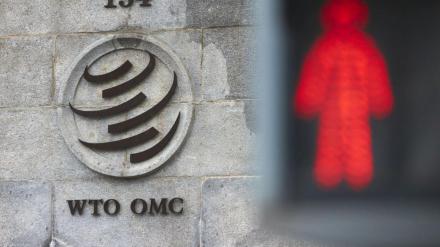The 13th Ministerial Conference of the World Trade Organisation (MC13) was deadlocked last Thursday with key members holding on to their positions on key issues of agriculture, fisheries and e-commerce taxation.
The discussions, that lasted for four days were expected to get over by evening but talks were still on, at the time of going to press.
However, even if the ministers of 166 WTO members decide to disperse without any movement from their current positions or taking on new commitments to address trade issues till the next ministerial, there will still be some achievements from MC13.
It took on two new members – Comoros and Timor Leste. Comoros is a group of islands off the eastern coast of Africa while Timor Leste is in Southeast Asia on the southernmost edge of Indonesian archipelago.
“There are 22 more countries that have applied for induction in the WTO,” an official said.
Domestic Services Regulation is the other achievement of the meeting where 72 countries collectively decided to take on additional obligations to ease services trade. These obligations will be added to their schedules in the General Agreement on Trade in Goods (GATS).
These obligations seek to mitigate the unintended trade restrictive effects of measures relating to licensing requirements and procedures, qualification requirements and procedures, and technical standards among themselves. The disciplines will be applied on a “most-favoured nation” principle, meaning that they will benefit all WTO members. It will also benefit Indian professional companies who will now have equal opportunity to access markets in these 70 countries if they meet the standards.
Another achievement of the conference is agreement on LDC Graduation. Least Developed Countries (LDC) lose benefits like duty-free and quote-free exports when they graduate to the developing countries category. At the MC-13 it was decided to keep this concession for LDCs for another 6 years. In this period no country will not be allowed to question the concession in the dispute settlement system of the WTO. Earlier this time period was three years. This period was for allowing these countries for capacity building so that they can navigate the world trade ecosystem without the LDC benefits. For two years these LDCs will be provided handholding.
The issues holding up discussions centre around agriculture and fishery subsidies. If no breakthrough comes during the extended period then these issues get pushed to the next ministerial meeting.
India wants a permanent solution to the issue of public stockholding for food security that was decided way back in 2013. The counties opposing it are a group of agriculture exporters like Argentina, Brazil, Australia and Canada who say that these distort food markets. The US and countries competing with India in agriculture trade are demanding a cap in subsidies provided by India and other developing countries to their agriculture. India is also questioning the subsidies provided by the developed countries.
Similarly, the emerging economies are demanding that at least a 25-year moratorium on subsidies should be there for nations engaged in distant water fishing or fishing-related activities beyond their EEZs (exclusive economic zones).
Fishing beyond 200 nautical miles from the seashores of a country is termed distant water fishing. Despite the talk of agreement on the issue in the last Ministerial Conference, the countries like Norway, US, China, Japan that have created huge distant water fishing capacities have got an escape clause. As per the clause they can provide subsidies if the fishing is done on a sustainable basis.
India has stressed that historically, while subsidies by certain nations to the fisheries sector have led to over-exploitation, subsidies are also vital for developing countries and small economies to develop and diversify their fisheries sector as well as to protect the food security and livelihood security of their fishermen.
Then there is an issue of a moratorium of taxation of cross-border electronic transmissions which is ending on March 31. India wants and some other countries want no extension to the moratorium while the US and European Union want this to be extended by another two years.
